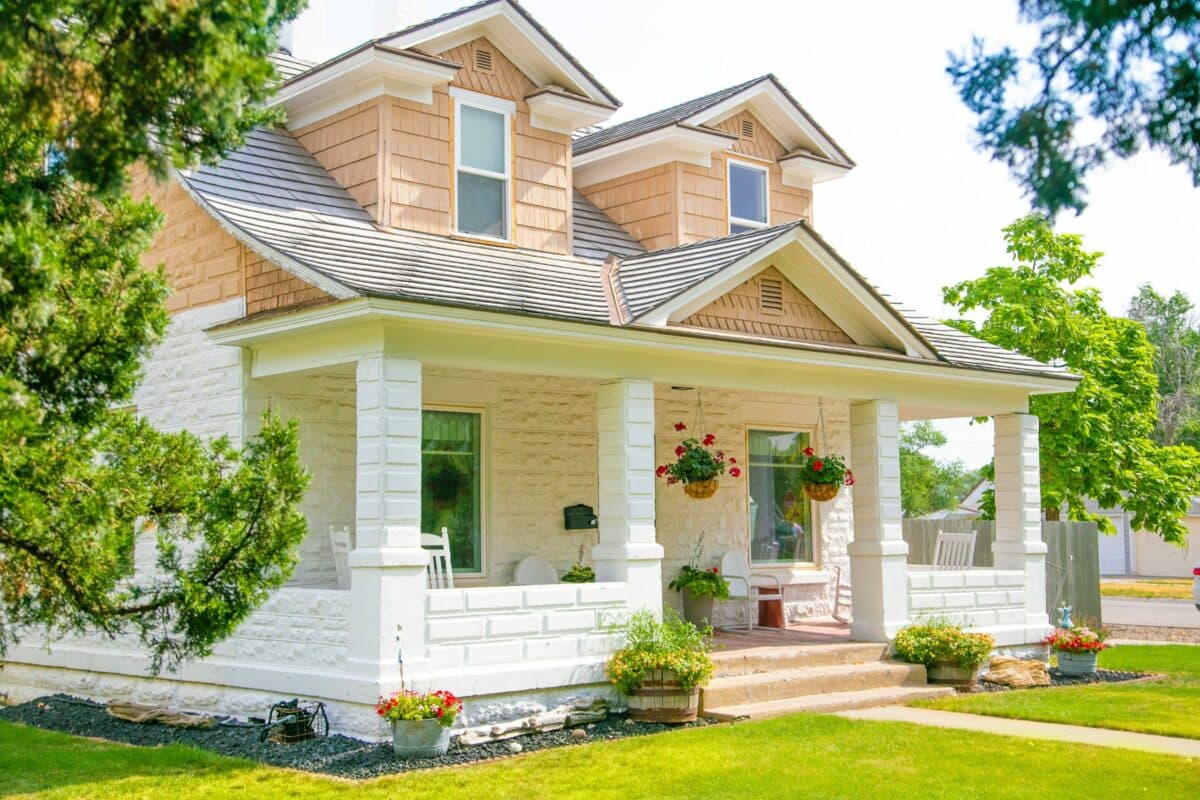How to Get a Mortgage with Bad Credit in Canada
By Loraine Couturier | Fact-checked by Maude Gauthier | Published on 20 Feb 2024

The credit score you have will directly affect how or if you can get a mortgage in Canada. If you have a good credit score (680 and above for a home), you’ll be offered competitive credit products. If you have a bad credit score, there will be less available to you. The good news is that your credit score can quickly improve when you change your financial habits. Also, there are some mortgage loan opportunities available even for those with bad credit. To get a mortgage with bad credit, try finding stable employment, having a larger down payment and finding a guarantor.
Stable employment
Whether you are self-employed or employed, you want to keep your income stable. If you can do that, prime lenders are more likely to approve you. If your credit isn’t great and you have an unstable employment history, you’re going to be considered a risky investment. Find a stable source of income that can be confirmed through the Canada Revenue Agency. This will give lenders more confidence in your ability to pay back the loan.
Look at subprime and private lenders
If you can’t wait for a good credit score, there are some other options. You can talk with lenders that specialize in loans to people with bad credit. If you don’t want to wait for your credit score to improve, you can consider going with a lender that deals with bad credit borrowers.
If your score is lower than 600, you might have no choice but to find a private lender. They offer subprime loans offered at rates above prime. Basically, you’re going to be paying more interest.
Do be aware that with private lenders, you’ll probably have to put down a minimum down payment of 20%. Your rate can be anywhere from 10 to 15% on average. This is a lot more than with a traditional loan. In those cases, a prime lender might require only a 5% down payment with a 3 to 4% mortgage rate.
Save for a larger down payment
Some prime lenders will work with you if your credit score is bad if other criteria is met. If you have a 20% down payment, you may still be able to get a mortgage with a competitive interest rate. Some lenders accept a credit score of 620 to 640 if the down payment is good. An insured mortgage is required when you buy a home with less than 20% down. Otherwise, it’s not necessary and lenders are more likely to accept the fact you have a bad credit score.
Having a larger down payment shows the lender that you’re improving your financial situation. It shows you’re less of a risk. Another benefit is that you can pay off your mortgage faster or make smaller monthly payments.
Rebuild your credit
It can take some time to rebuild your credit but it’s worth it. Check out your credit score and what is hindering you from improving it. Start to make those improvements like working on debt-to-income ratio, paying bills on time and getting a credit card for bad credit. It’s a matter of prioritizing where your money goes and how you spend it. This can improve your credit quickly and you’ll save a lot of money on interest rates for a mortgage.
Pay bills on time and in full. If you don’t have the funds to pay off your full credit card statement, at least meet the monthly minimum payment.
You can opt for a secured credit card like Neo if you can’t get an unsecured card. Make sure you don’t apply for too much credit at one time. Any of the hard checks with your credit score will reduce your credit score. It may look like you have debt problems as well.
Find a co-signer or guarantor
If you have bad credit, a co-signer or guarantor can help you get a mortgage. This would be someone close to you like your legal guardians. Lenders are going to see this as a far less risky loan.
A co-signer will sign all the documents relating to the mortgage and their name is put on the title. They will co-own the home while you live in it and are liable for mortgage payments. This is putting the risk onto the co-signer as they make the payments if you can’t. A guarantor will guarantee that payments are made. They are responsible if you don’t pay but they don’t own the property.
Is it worth getting a mortgage with bad credit?
If you have a low credit score and don’t meet the minimum score needed for a mortgage, there are other alternatives. If an A-lender or prime lender won’t approve you, you can opt for a B-lender or subprime lender. They work with people like you who don’t have a good enough credit score to get a loan from the bank. If you happen to be working with a broker, they likely know a lender who can help you out.
Your broker will often be paid a finder’s fee by the lender. However, with a bad credit mortgage, you may have to pay extra fees if your broker refers to you. Beyond the finder’s fee, you’ll be paying other fees when you work with a subprime lender.
Normally, these fees wouldn’t happen if you were working with an A-lender. Not only are you paying a higher mortgage rate, you may pay up to a 1% processing fee on the total amount of your loan. If you work with a lender found through a poor credit mortgage broker, there may be another 1% added. Putting this in perspective, this 2% will be an additional $10,000 on a $500,000 mortgage loan.
If you have bad credit and want a mortgage, you’ll be paying much more throughout the lifetime of the loan. If you default on payments, the lender can sell your home to get back the costs of what you owe. Yes, you may have more luck locking in a mortgage loan but in the long run, you’ll be paying a lot.
Improve your credit score instead of getting a bad credit mortgage
Most financial experts will advise you to work on improving your credit score. Instead of buying a house, take the time to improve your credit score. Save some money while you’re at it so you can put a larger down payment on your home. Talk to a broker and find out how much money you’re going to pay in interest with each type of mortgage option.
Getting a mortgage with bad credit will involve higher interest rates. You’ll likely need to put down a minimum of 20% and there’s a risk that your home could be repossessed if you default on payments. Instead of applying for a bad credit mortgage, work to improve your credit score. This will save you a lot of money now and in the future.
